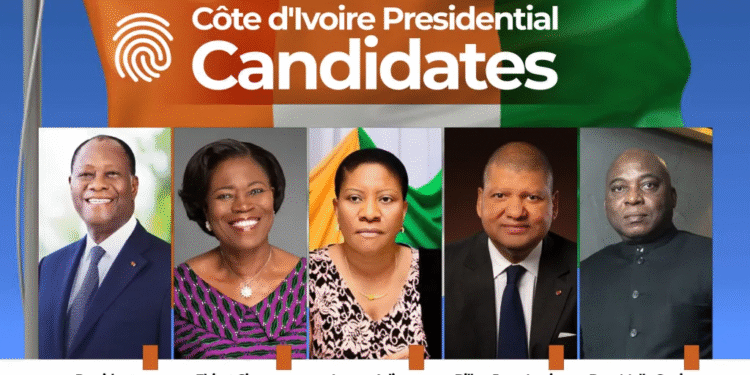Ivory Coast heads to the polls on Saturday for a presidential election widely expected to hand incumbent President Alassane Ouattara a fourth term, following the disqualification of key opposition figures from the race.
Ouattara, 83, who has led the world’s top cocoa-producing nation since 2011, remains the dominant political force as his ruling party, the Rally of Houphouëtists for Democracy and Peace (RHDP), seeks a first-round victory to avoid a runoff.

Nearly nine million Ivorians are eligible to vote between 8 a.m. and 6 p.m. local time, choosing from five candidates. However, analysts predict little suspense in the outcome.
“It is hard to imagine any surprise at the end of this election since opposition heavyweights aren’t present,” said Gilles Yabi, founder of the Wathi think tank.

Former president Laurent Gbagbo and ex-Credit Suisse CEO Tidjane Thiam were both barred from contesting—Gbagbo due to a criminal conviction and Thiam for acquiring French nationality. Their exclusion has sparked anger and sporadic protests.
The government has deployed about 44,000 security personnel nationwide to prevent unrest, particularly in opposition strongholds in the south and west. A night-time curfew was imposed in the Yamoussoukro region, home to the political capital.
So far, at least four people, including a police officer, have died in election-related violence. Authorities have also banned rallies, while dozens of protesters have been sentenced to three years in prison for disturbing the peace.
“We must be ready to protect Ivory Coast,” Ouattara told supporters during his final campaign rally on Thursday, calling for calm and vigilance.
Ibrahime Kuibiert Coulibaly, head of the Independent Electoral Commission, said: “The election is frightening, but we dare to believe there will be more fear than harm.”
Gbagbo has condemned the election as a “civilian coup d’état” and “electoral robbery,” arguing that the disqualification of strong contenders undermines the process. “Those who could have won have been eliminated. I do not accept this,” he said earlier this week.
Voter turnout is expected to be a key indicator of the election’s legitimacy. Analysts predict low participation in southern and western regions loyal to Gbagbo and Thiam, while the RHDP anticipates a strong showing in the pro-Ouattara north.
The remaining contenders include former Trade Minister Jean-Louis Billon, running under the Democratic Party banner; former First Lady Simone Ehivet Gbagbo; left-wing independent Ahoua Don Mello, known for his pro-Russian stance; and centrist Henriette Lagou, who also ran in 2015.
None command nationwide support comparable to Ouattara’s ruling party. Ouattara first came to power after a violent post-election crisis in 2010–2011 that claimed over 3,000 lives. His administration has since overseen strong economic growth and improved security, though critics say the benefits have not been widely shared and that the cost of living continues to soar.
Nearly 1,000 domestic observers and 251 monitors from ECOWAS and the African Union are overseeing the vote. Official results are expected early next week.








